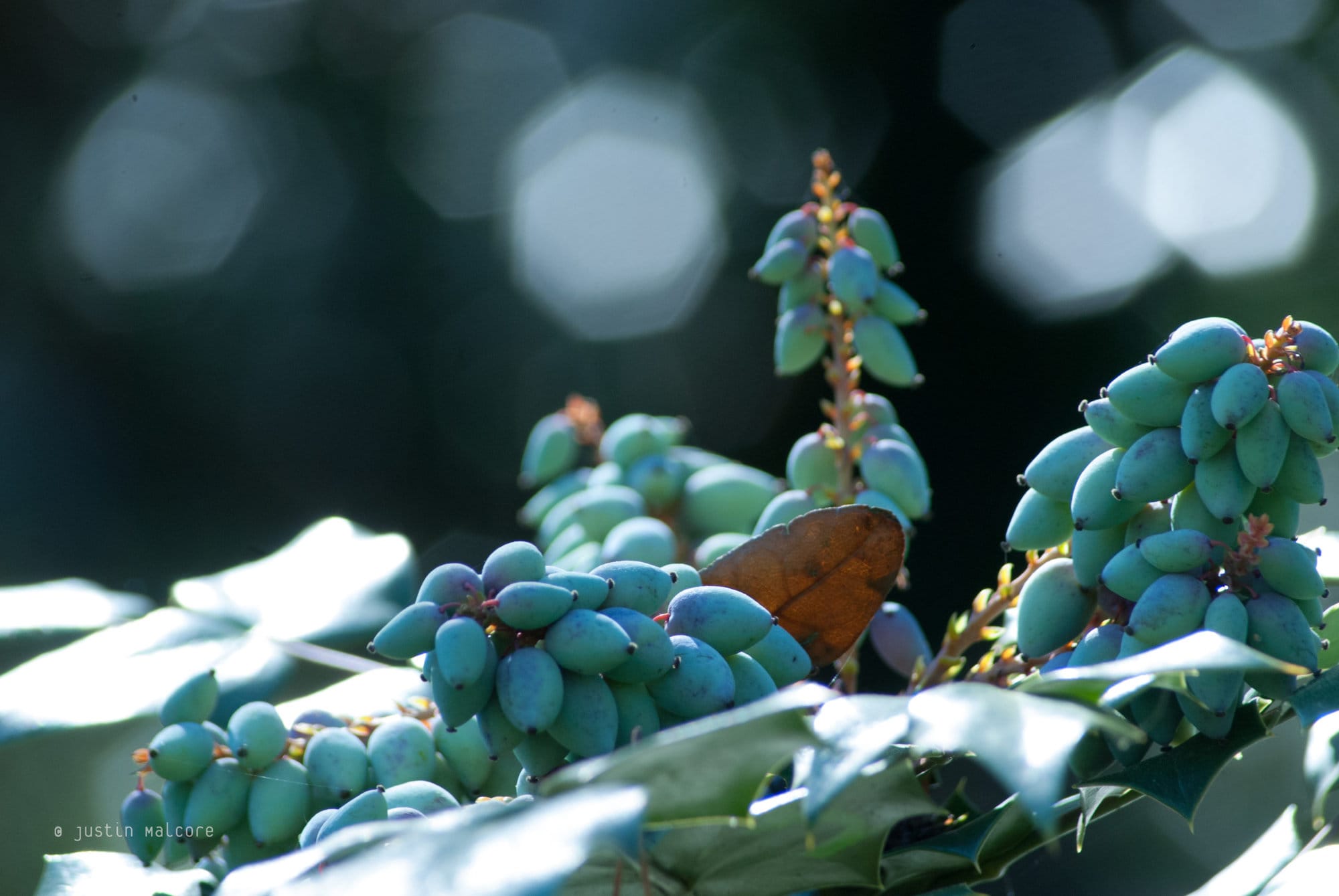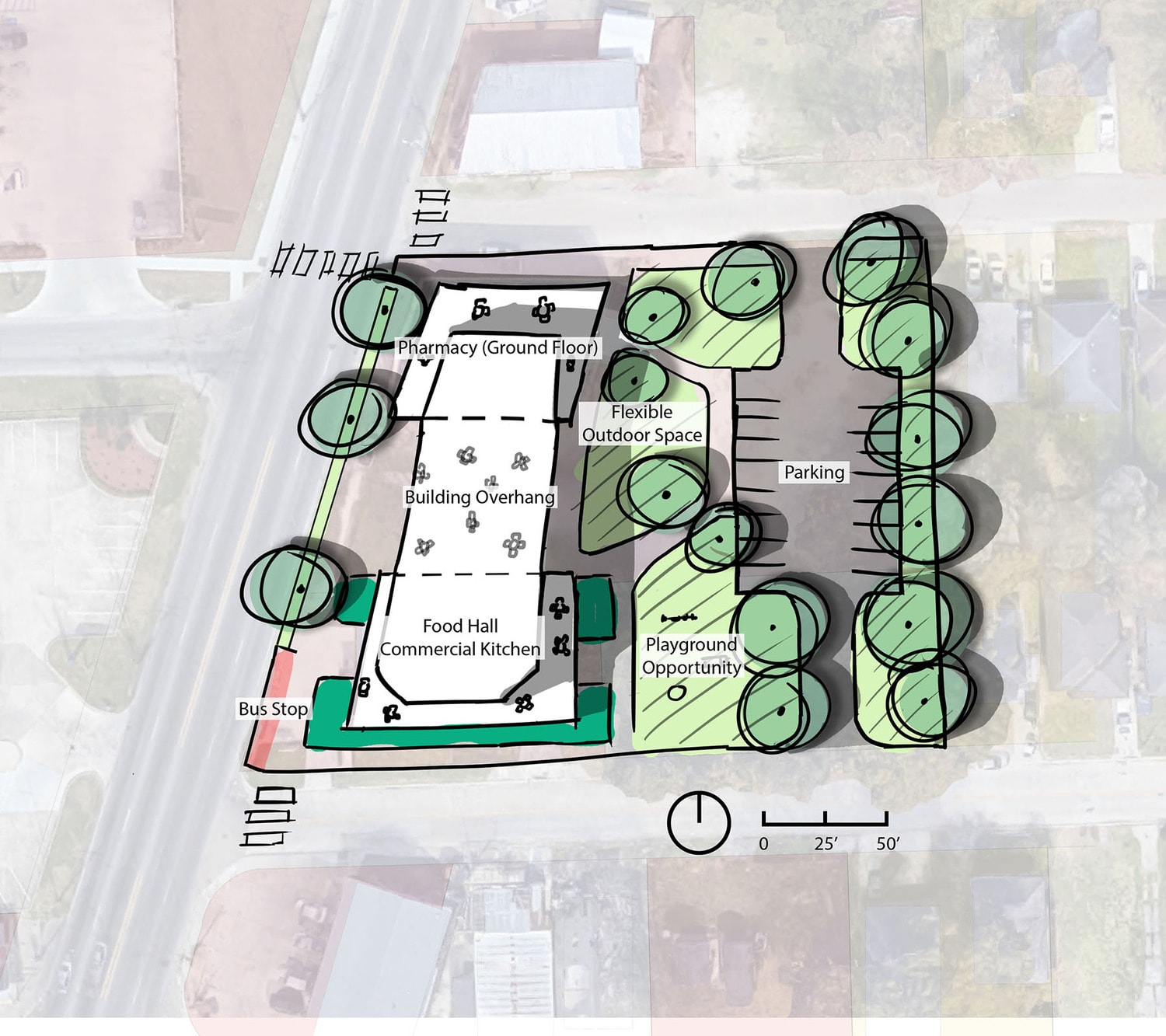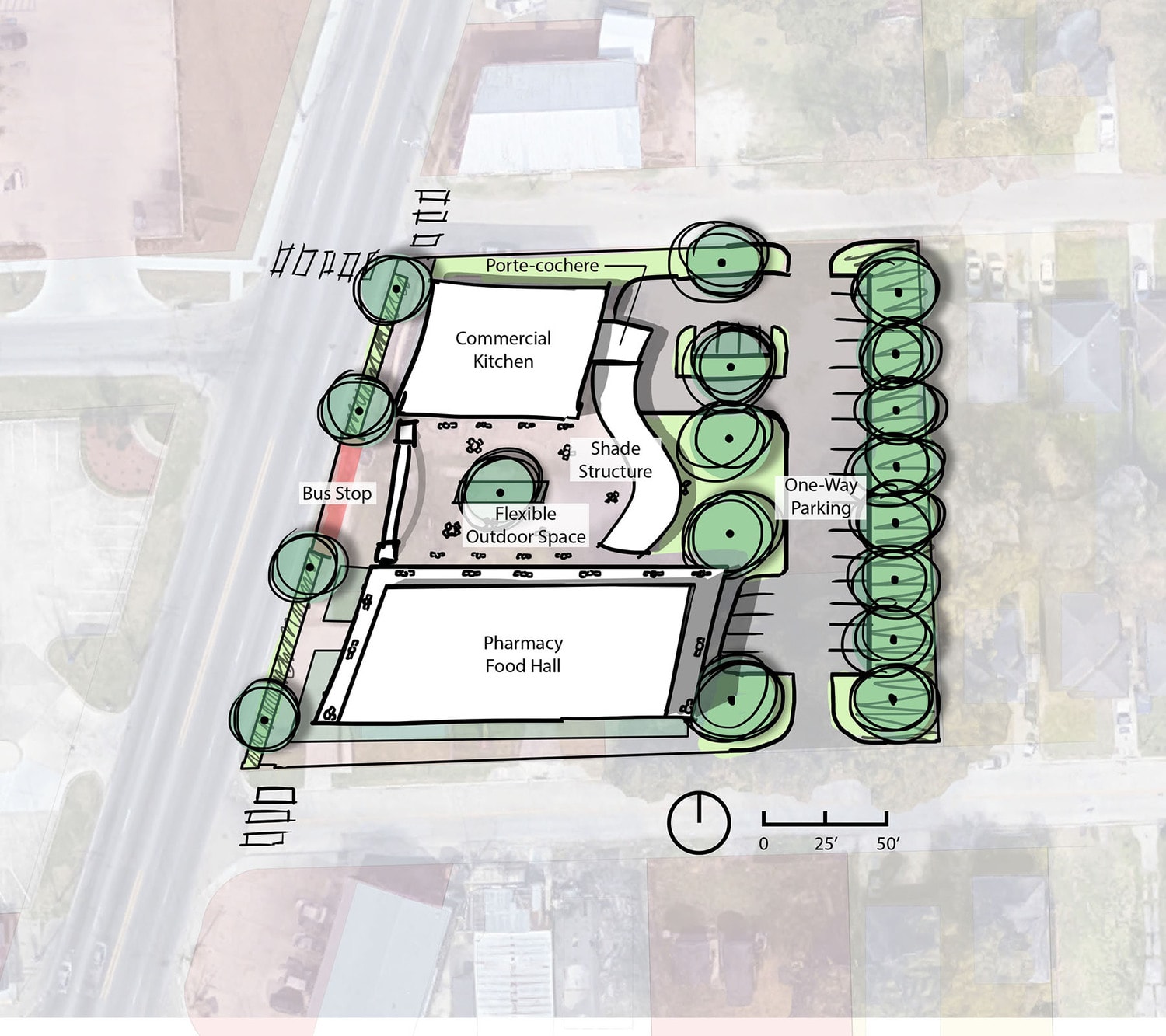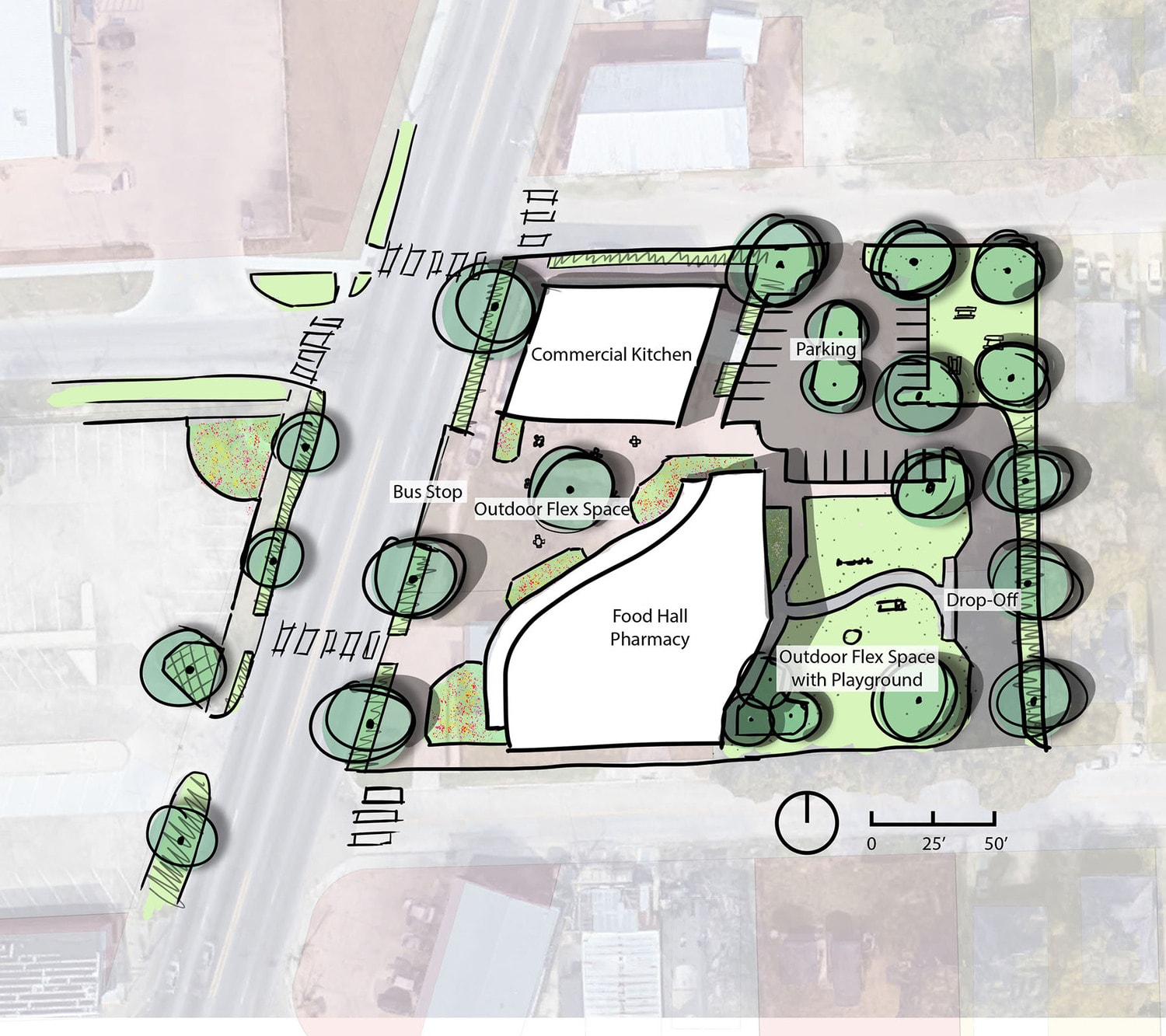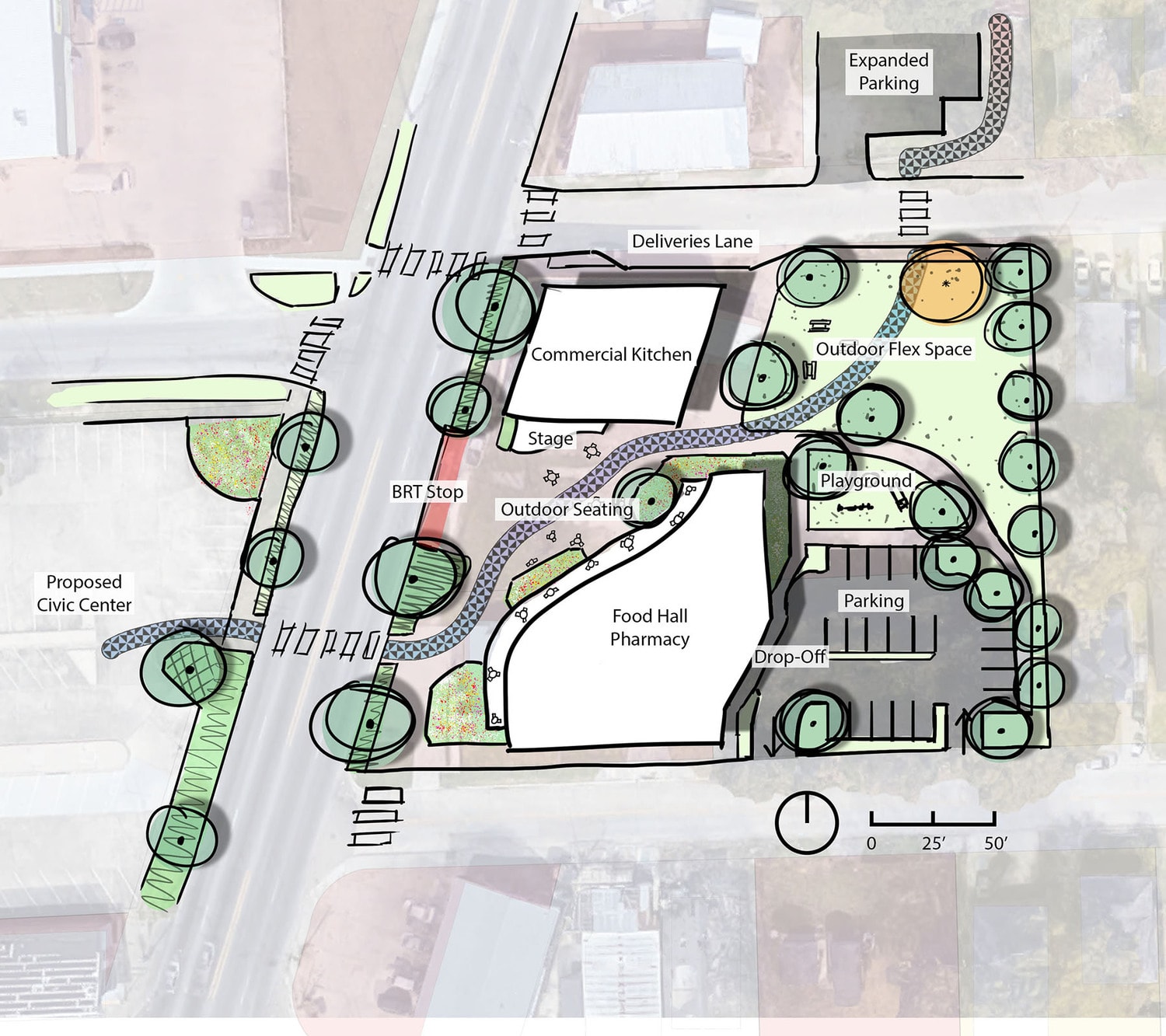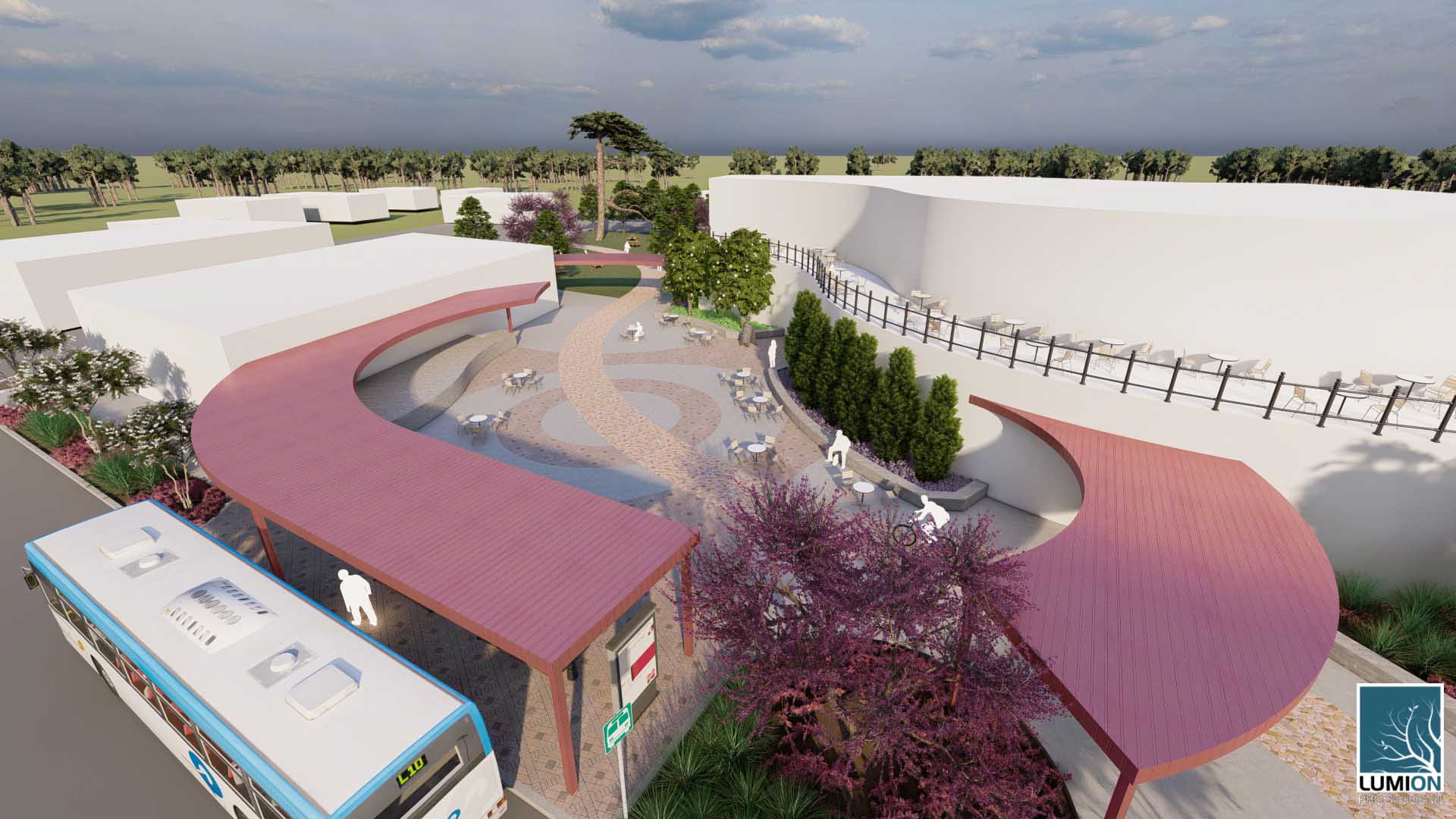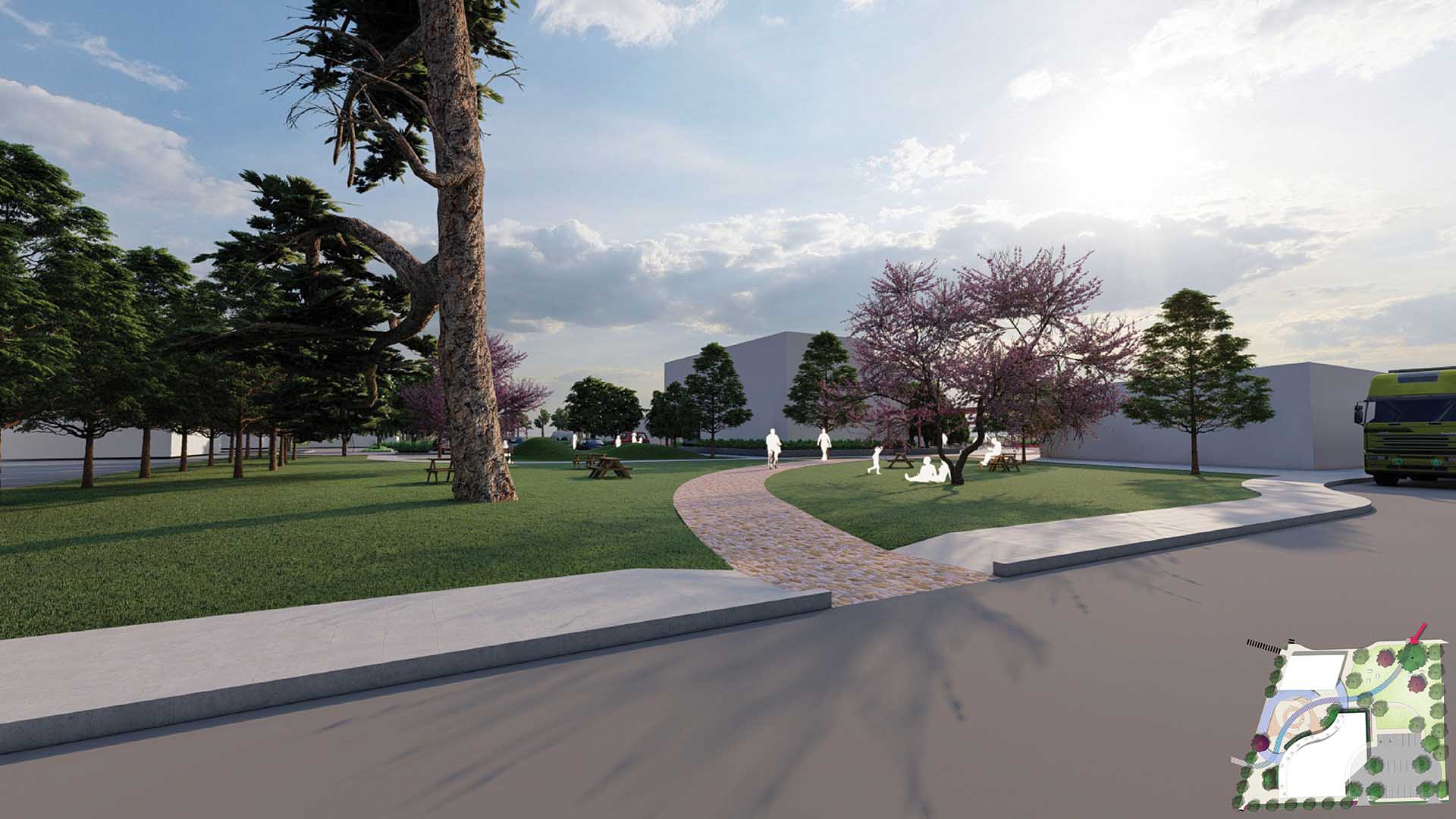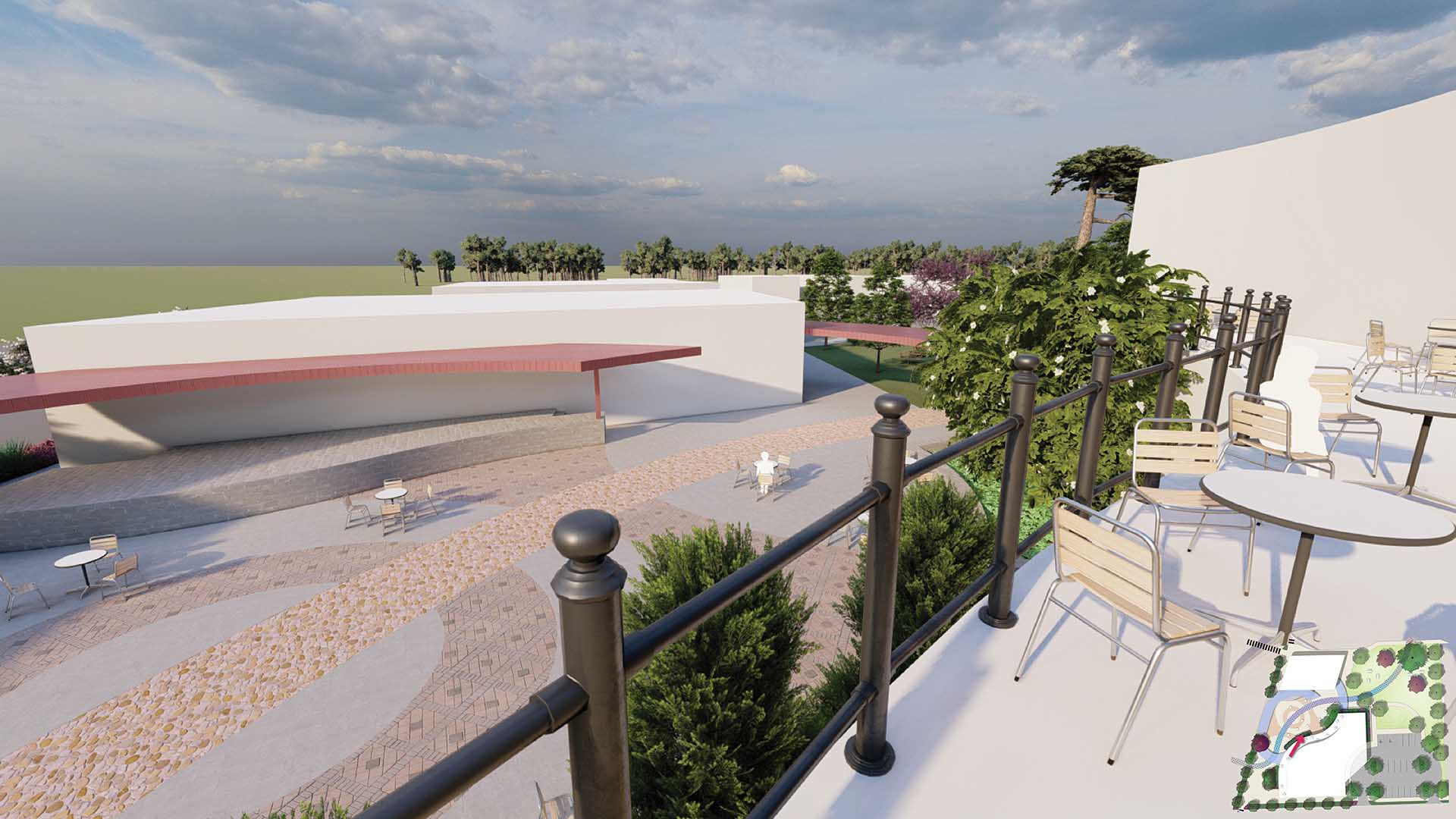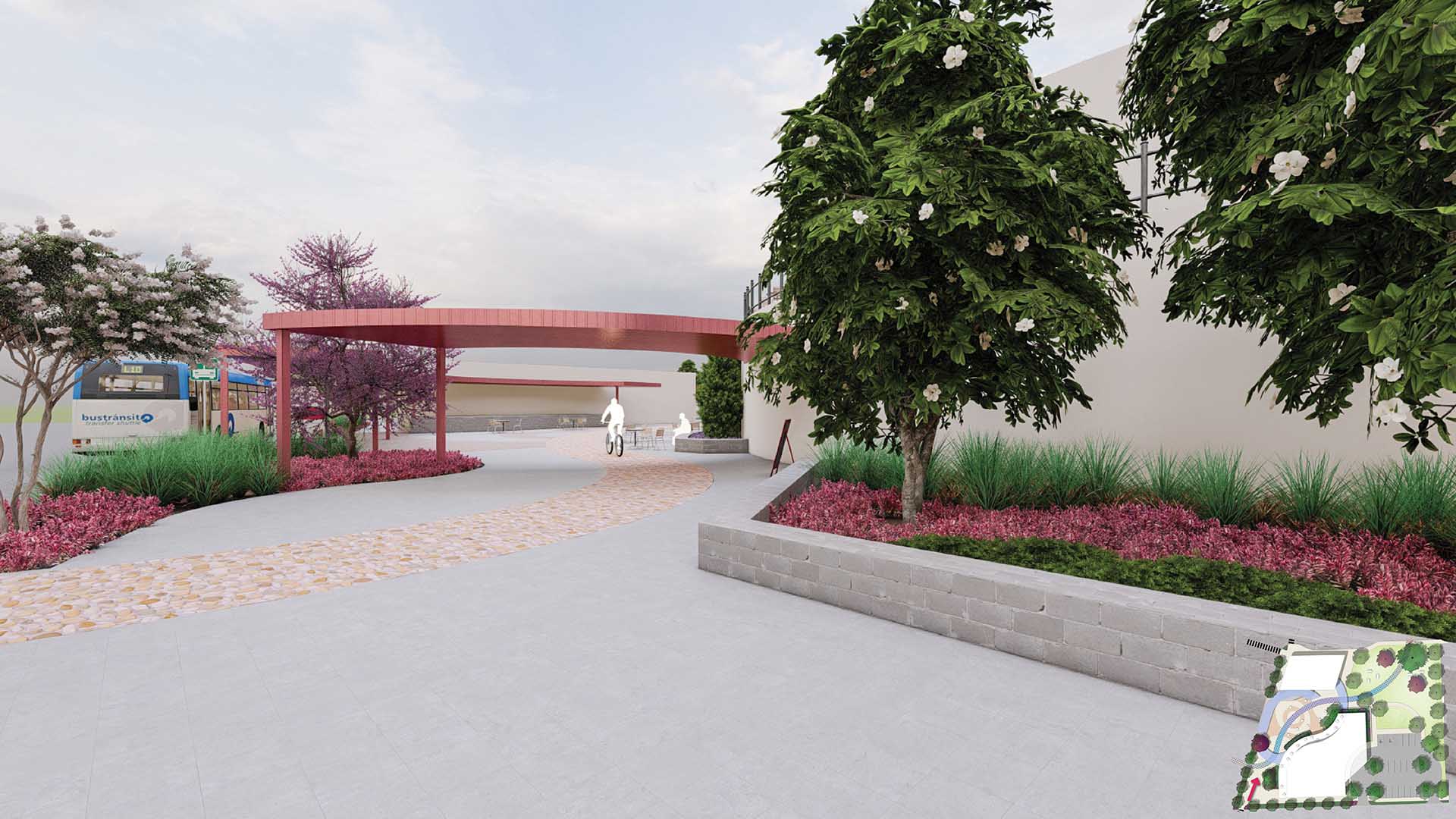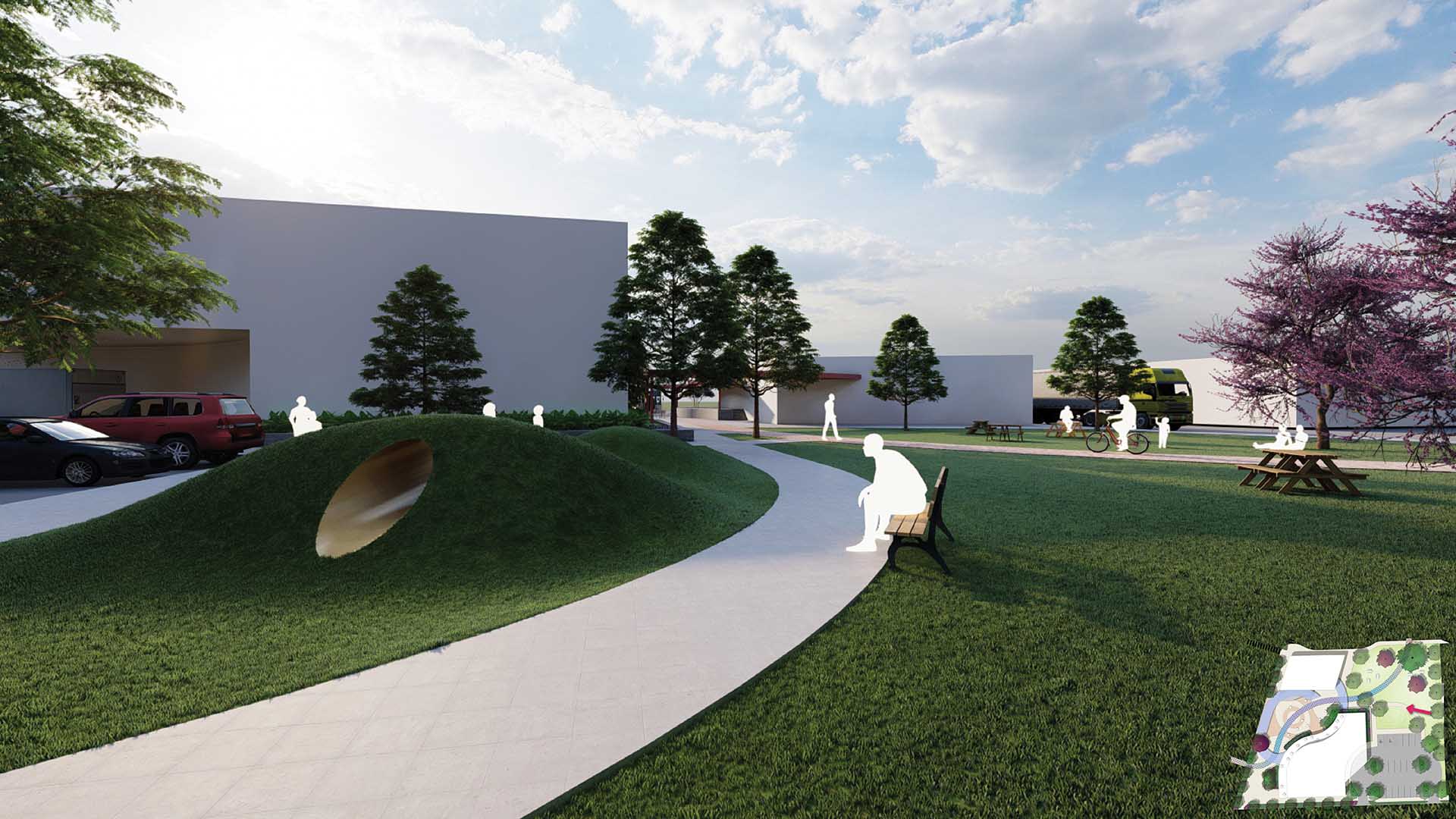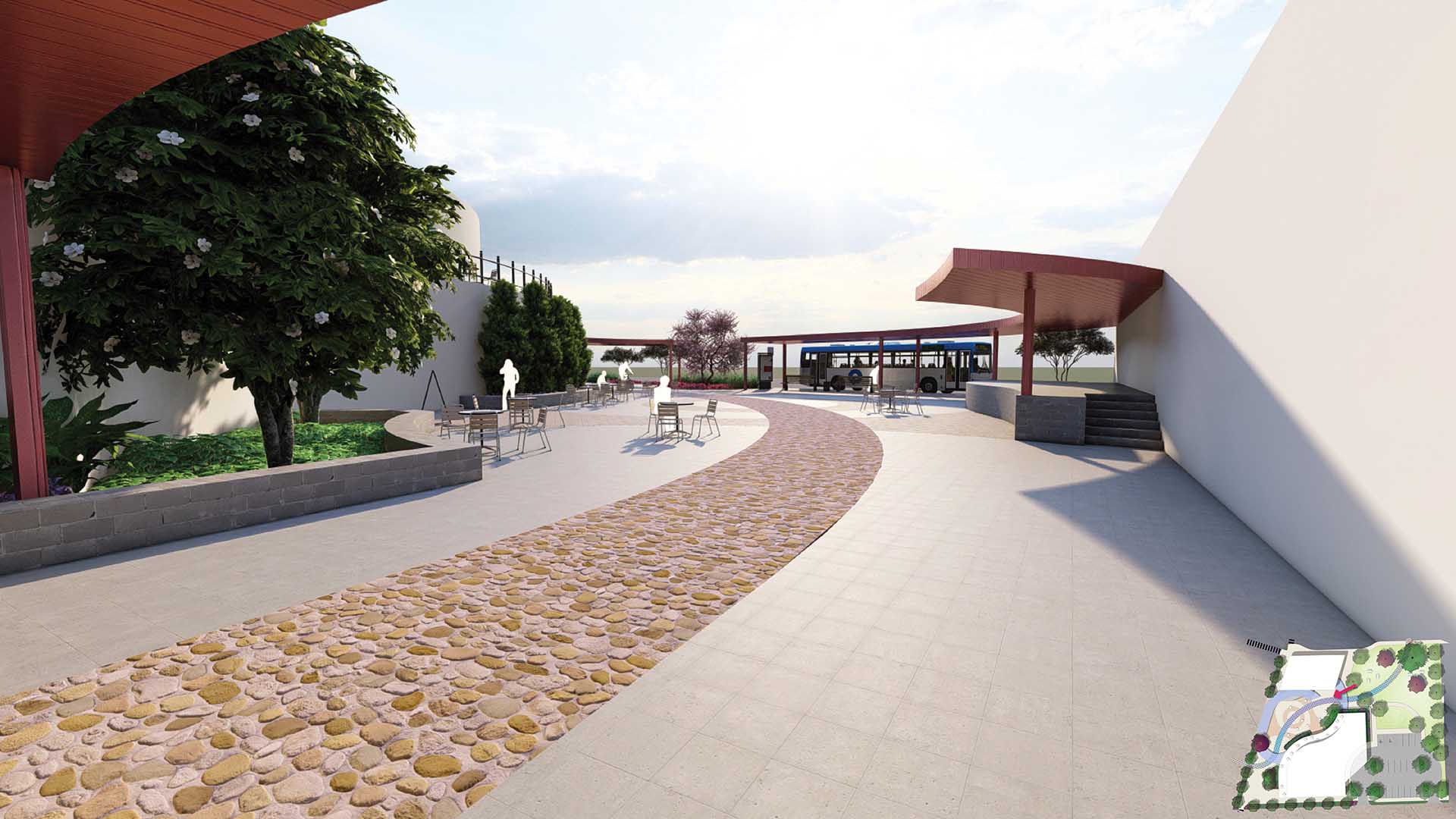This semester-long project explored the ways we can utilize community input to design with the community’s needs in mind. For the first section of the project we were broken into teams, and each team designed small pocket parks on Plank Road. We held community meetings to hear feedback and make improvements, and eventually presented the parks to those community members.
AutoCAD, Photoshop, Rhino, Lumion
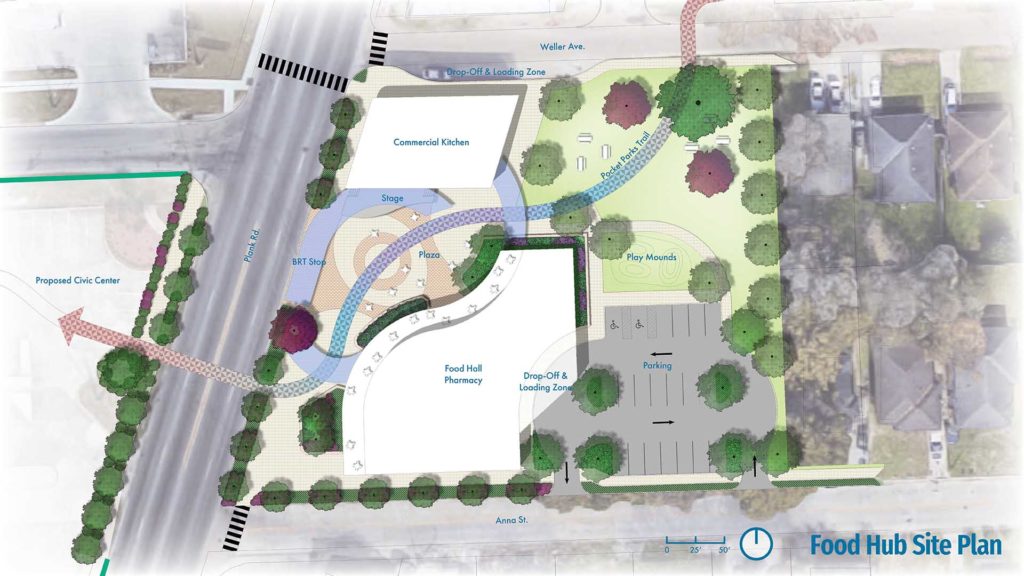
The design adds a new structure to house a food hall and a small pharmacy. The existing building houses a commercial kitchen. The connection to the Pocket Park Trail is highlighted, which also connects the site to the future Civic Center across the street.
The focus of this section of the project was to design a food hub for the surrounding neighborhood. Universal accessibility to the site is important as many people in the surrounding area do not have readily-available sources for groceries. The food hub needed to accommodate a small grocery store, a pharmacy, and a food hall to house multiple locally-owned vendors.
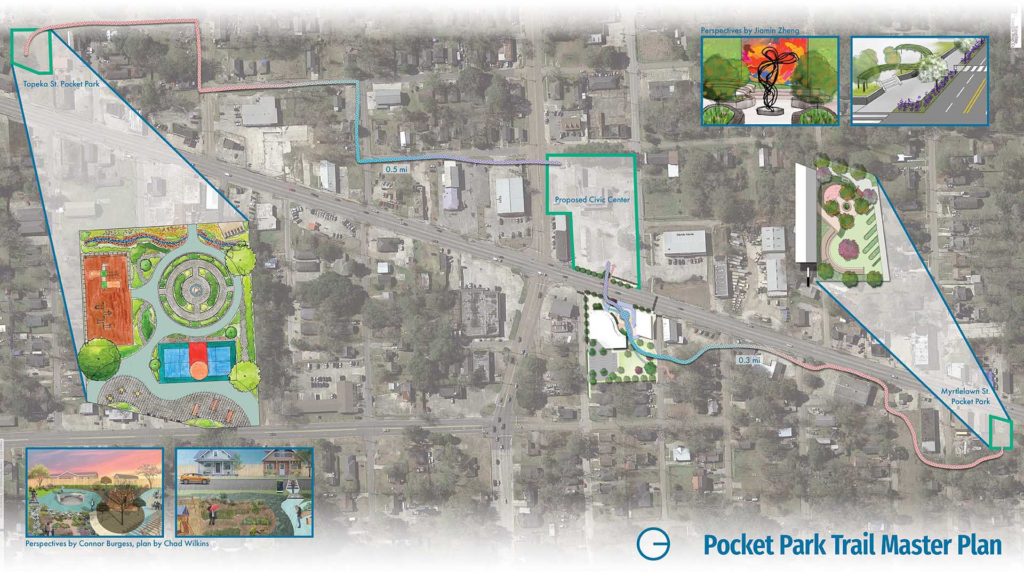
I chose to lean into the community access angle of the project by incorporating the pocket parks into an overall Pocket Parks Trail masterplan. The trail would provide pedestrian access from the proposed Myrtlelawn St. Park 0.3 miles North and the proposed Topeka St. Park 0.5 miles South of the food hub and civic center.
